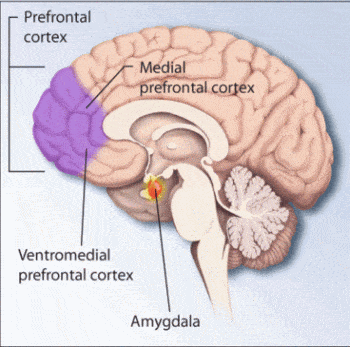From Phys.Org:
 Researchers may have found a way to improve a common treatment for post-traumatic stress disorder (PTSD) by changing how the brain learns to respond less severely to fearful conditions, according to research published in Journal of Neuroscience. The study by researchers at The University of Texas at Austin Dell Medical School suggests a potential improvement to exposure therapy—the current gold standard for PTSD treatment and anxiety reduction—which helps people gradually approach their trauma-related memories and feelings by confronting those memories in a safe setting, away from actual threat.
Researchers may have found a way to improve a common treatment for post-traumatic stress disorder (PTSD) by changing how the brain learns to respond less severely to fearful conditions, according to research published in Journal of Neuroscience. The study by researchers at The University of Texas at Austin Dell Medical School suggests a potential improvement to exposure therapy—the current gold standard for PTSD treatment and anxiety reduction—which helps people gradually approach their trauma-related memories and feelings by confronting those memories in a safe setting, away from actual threat.
In a study of 46 healthy adults, researchers compared participants’ emotional reactions to replacing an unpleasant electric shock on the wrist with a surprise neutral tone, instead of simply turning off the shocks. Omitting the feared shocks is the current norm in exposure therapy. The participants’ brain activity was measured by functional magnetic resonance imaging (fMRI). Their emotional reactions were measured by how much they were sweating from their hands. Compared with simply turning off the shocks, replacing the feared shocks with a neutral tone was associated with stronger activity in the ventromedial prefrontal cortex—an area critical for learning safety and inhibiting fear. Replacing the feared shock with a simple tone also lowered participants’ emotional reactions to pictures that previously had been associated with the electric shock when participants were tested the next day.
More here.
